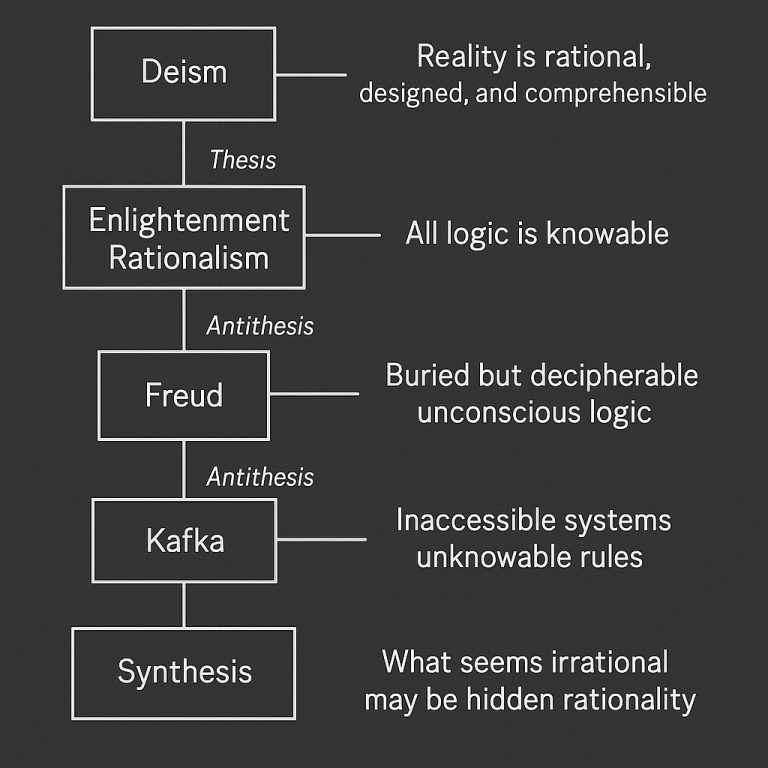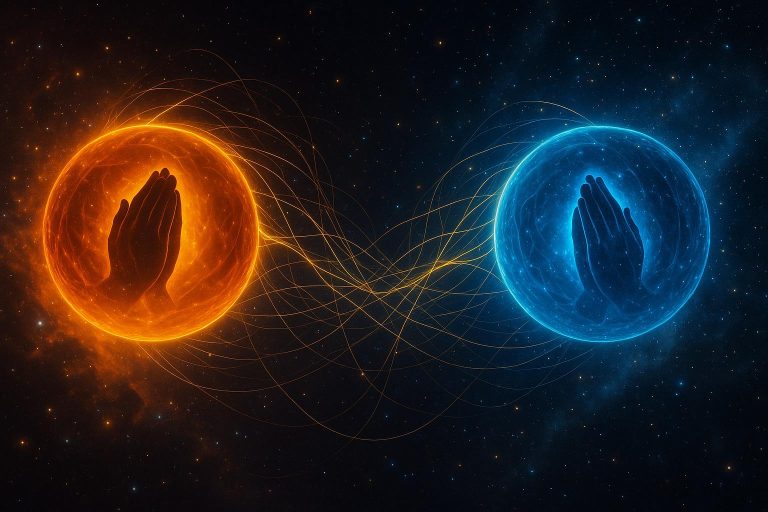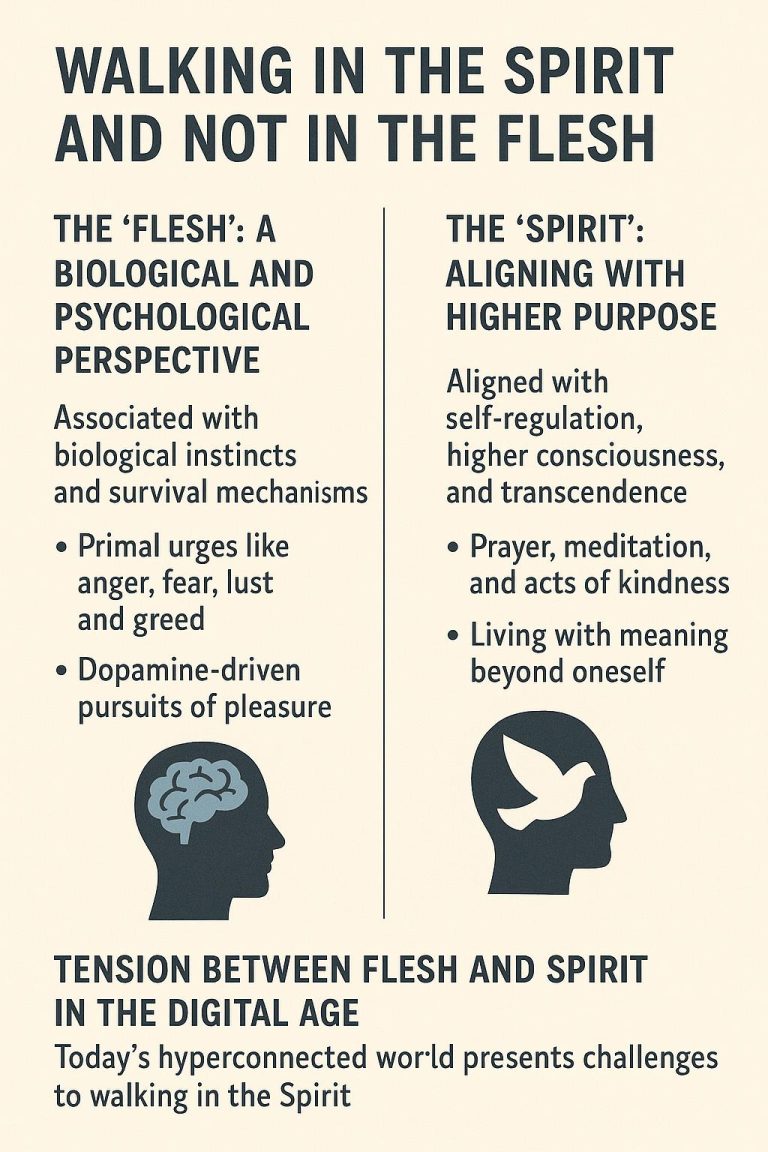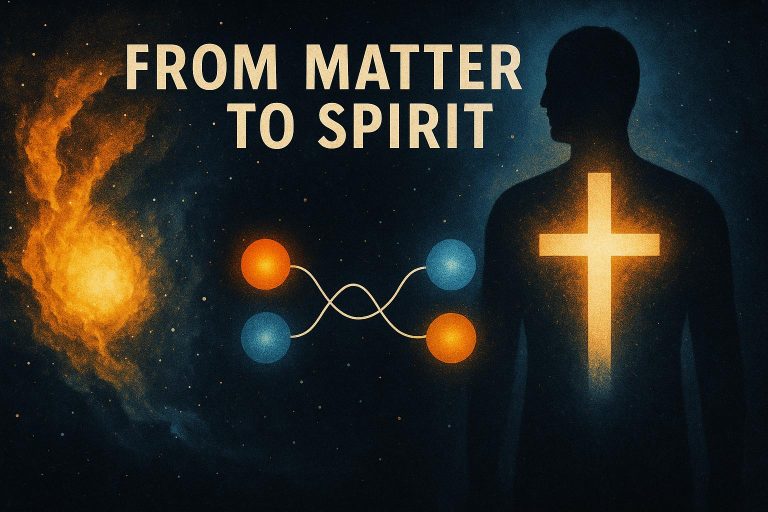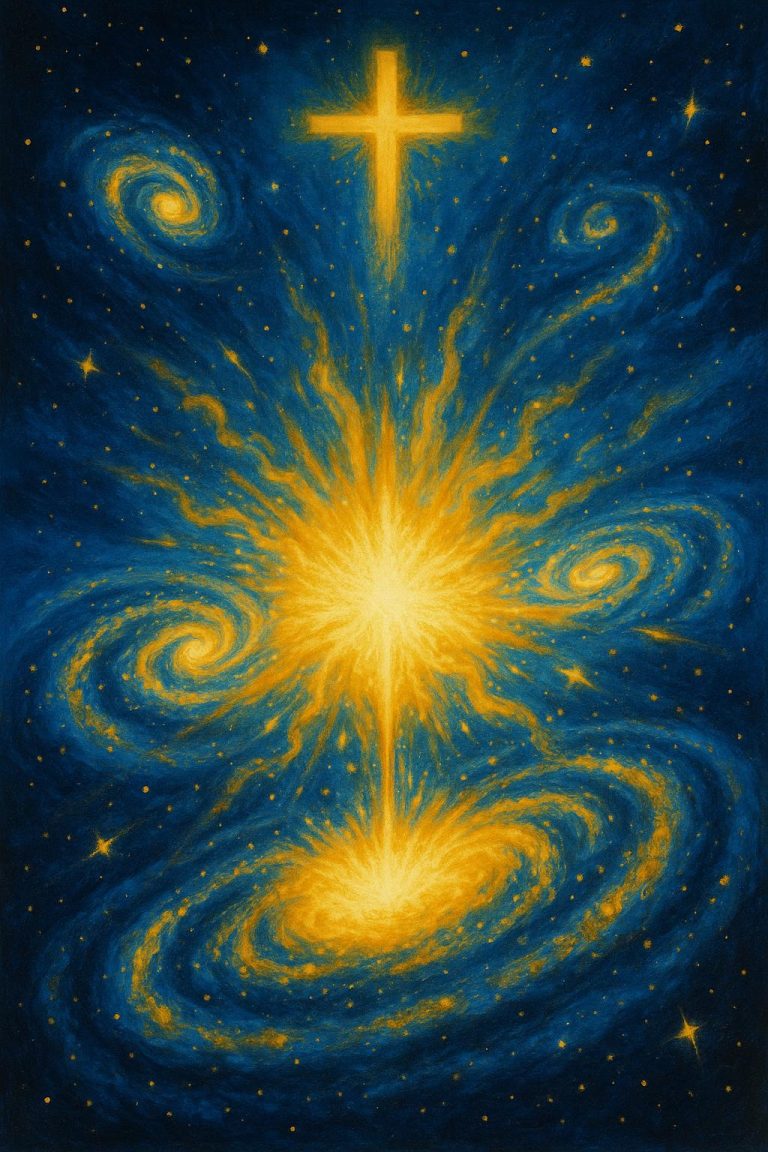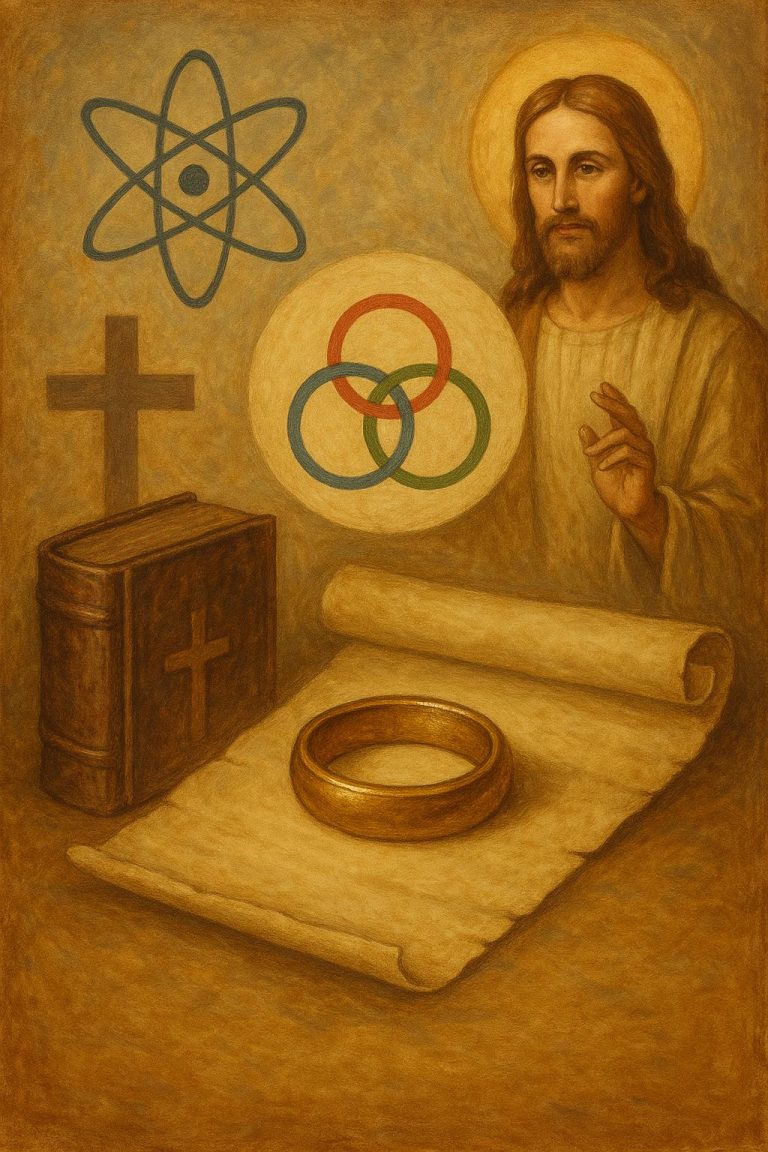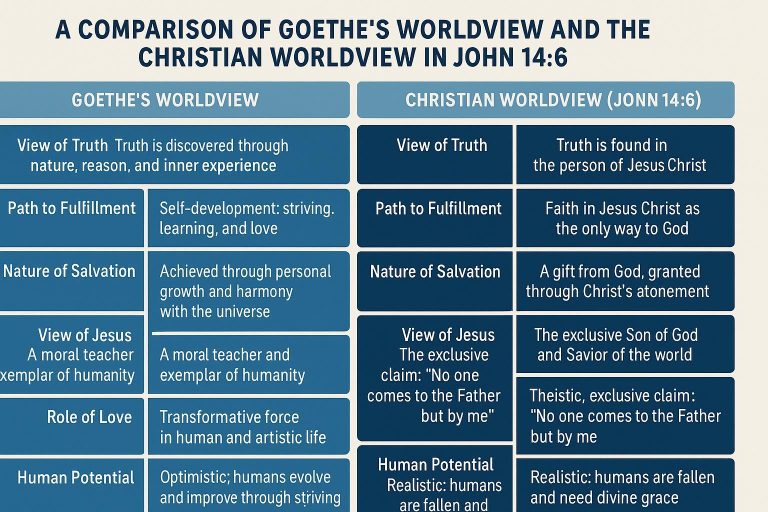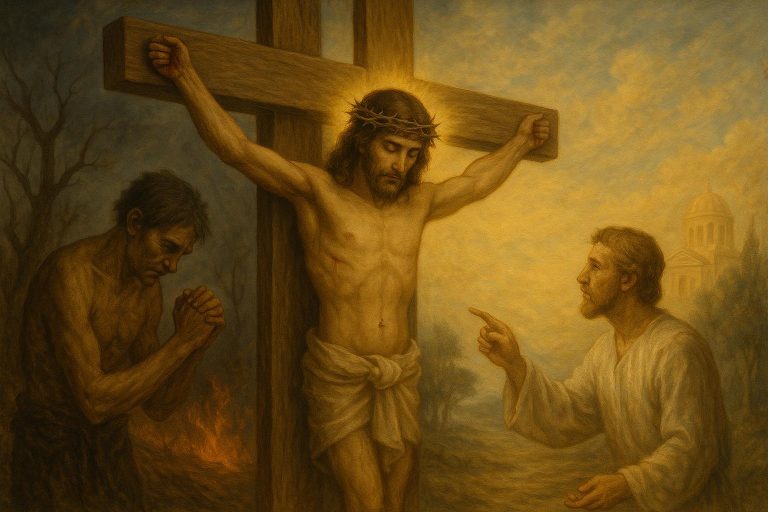From Deism to Kafka: Logic, Irrationality and the Hidden Order of Things
“What we call irrational may simply be logic we do not yet understand.” Human history is filled with attempts to make sense of the world. We’ve sought patterns, laws, and meanings behind events — certain that reality follows a logic that reason can uncover. But as we’ve climbed the ladder of knowledge, we’ve discovered unexpected…

